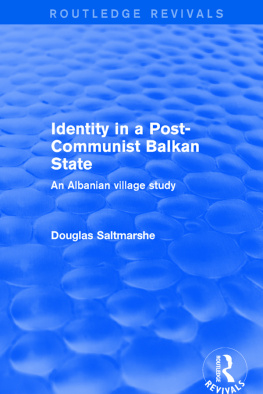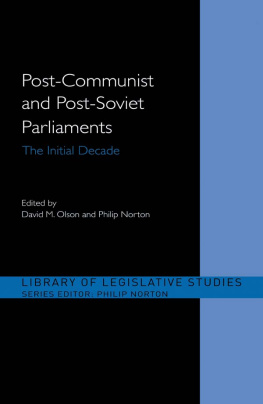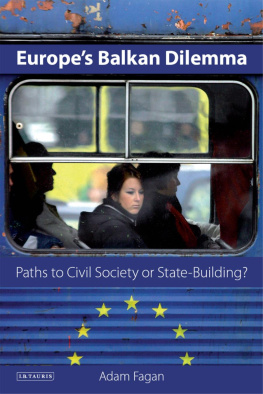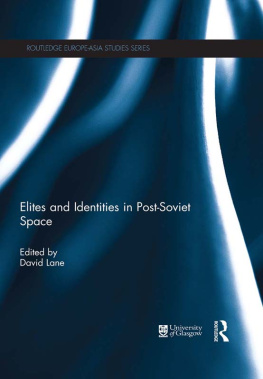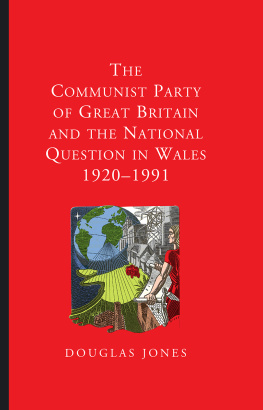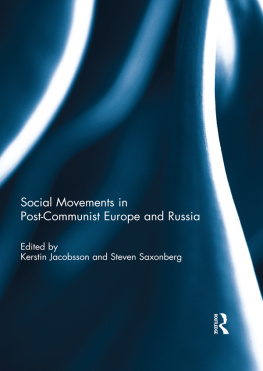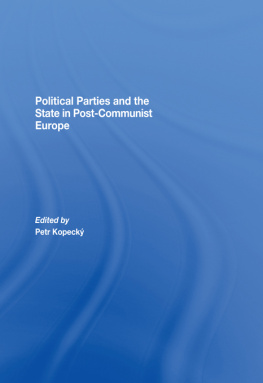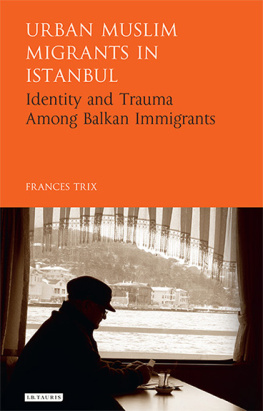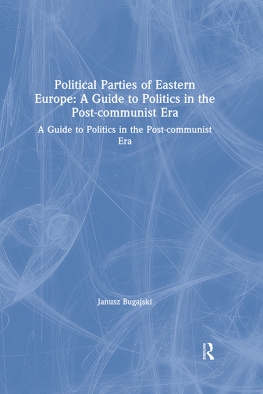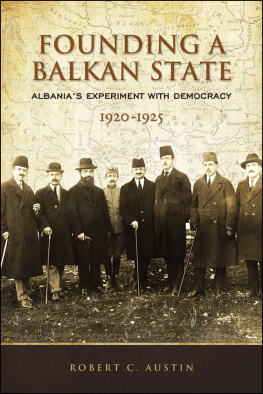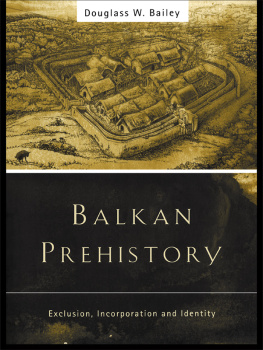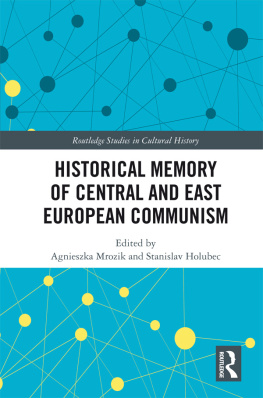IDENTITY IN A POST-COMMUNIST BALKAN STATE
For Ella and Miriam
Identity in a Post-Communist Balkan State
An Albanian village study
DOUGLAS SALTMARSHE
Visiting Fellow, University of Bath
First published 2001 by Ashgate Publishing
Reissued 2018 by Routledge
2 Park Square, Milton Park, Abingdon, Oxon OX14 4RN
711 Third Avenue, New York, NY 10017, USA
Routledge is an imprint of the Taylor & Francis Group, an informa business
Copyright Douglas Saltmarshe 2001
All rights reserved. No part of this book may be reprinted or reproduced or utilised in any form or by any electronic, mechanical, or other means, now known or hereafter invented, including photocopying and recording, or in any information storage or retrieval system, without permission in writing from the publishers.
Notice:
Product or corporate names may be trademarks or registered trademarks, and are used only for identification and explanation without intent to infringe.
Publishers Note
The publisher has gone to great lengths to ensure the quality of this reprint but points out that some imperfections in the original copies may be apparent.
Disclaimer
The publisher has made every effort to trace copyright holders and welcomes correspondence from those they have been unable to contact.
A Library of Congress record exists under LC control number: 2001088773
ISBN 13: 978-1-138-71932-3 (hbk)
ISBN 13: 978-1-315-19545-2 (ebk)
Contents
I wish to acknowledge the help and support I have been given in this endeavour, the heart of which derives from the time spent in two villages in north Albania. I have a debt of gratitude to the inhabitants of these villages. They put up with me and my intrusion into their lives during difficult times. It was an immense privilege to meet and learn so much from them. I was treated by and large with great hospitality and kindness in the traditional manner of Albania.
During my initial stay in Tirana I received Albanian lessons every evening for two months from Elida Metaj who refused all payment. I am full of thanks to her for having so unstintingly given her time to teach me at the end of an arduous days work.
In Shkodr, Teresa and Gaspar Prendi made me welcome in their home where they looked after me with such care and made my stays so pleasurable during times of great difficulty and considerable danger. Thanks to them.
Olsi Kabashi worked for me as a research assistant. I remain most grateful for his help, courage and level headedness.
My base for undertaking this study has been the University of Bath where I am grateful to Allister McGregor for his encouragement and a number of ideas and comments. In addition my thanks to Roger Eatwell and Colin Lawson who in various ways assisted me in bringing this project to fruition. I am also indebted to Derek Hall of the Scottish Agricultural College and Geoff Wood of the University of Bath whose advice has enriched my approach. Naturally, none of the above are in any way accountable for opinions, deficiencies or errors in the text, all of which are entirely my own responsibility.
Last, but not least, I would like to thank my family for their forbearance and support.
apparat communist party bureaucracy
bajraktar community leader, literally a standard bearer
bashkia municipality
besa word of honour, pledge, faith, creed, protection, loyalty, trust, agreement, promise, pact, treaty, armistice, pact
besnik faithfulness, loyalty
iflik a semi-feudal share cropping arrangement
denim one tenth of a hectare or 100 sq.mtrs
Dukajini a person from the Dukaj in mountains, a term commonly used to describe a recent migrant from the north.
fis tribe or clan
fshat village
krye chief or head
kryeplak village chief (literally - chief old man)
kulak peasant proprietor working for own profit
localitet locality (communist equivalent of communes)
llagja city district or ward
madrassa Muslim religious school or college
mehalla village zone encompassing a collection of dwellings
nder honour
nomenklatura communist party system of nomination
persekutim the persecuted, i.e. those detained for political reasons under communism
gytet city
rreth district or county
sherbil mountain herb
shtpi house
sigurimi Albanian secret police during the communist period
vilayjet province (Turkish administrative region)
vllazni a group of brothers, literally a brotherhood
zadruga communal joint family occupation of house and holding
zoti i shtpi head of house
ACP Albanian Communist Party
APL Albanian Party of Labour
CMEA Council for Mutual Economic Assistance
CPR common property resource
DF Democratic Front
DP Democratic Party
EBRD European Bank for Reconstruction and Development
EU European Union
FSU Former Soviet Union
GDP Gross Domestic Product
hh household
IMF International Monetary Fund
MNC Multi-national corporation
NIE New institutional economics
NGO Non governmental organisation
OECD Organisation for Economic Cooperation and Development
OSCE Organisation for Security and Cooperation in Europe
PC Peoples Council
PM Prime Minister
RPA Resource profile approach
SP Socialist Party
UN United Nations
USSR Union of Soviet Socialist Republics
WB World Bank
WEU Western European Union
Background
At their peak, during the latter half of the 20th century, communist regimes controlled a large part of the worlds land surface stretching from Central Europe and the Balkans to the Pacific Ocean. Other communist states existed in south east Asia, Africa and the Caribbean. The failure of the Eastern European states and the Soviet Union to maintain viable and competitive centrally planned economies resulted in the collapse of authoritarian social control, the disbanding of central economic planning and widespread interruption of trade relations. This breakdown took place over a period of about two years. By 1991 over 400 million people in Eastern Europe and the Former Soviet Union (FSU) experienced the collapse of communist rule and a massive decline in the standard of living. These former communist states then embarked on a process of political and economic transformation. At the end of the 20th century only the states of China, Vietnam, North Korea and Cuba remain controlled by regimes espousing communism. Nevertheless all these states are moving towards political and economic orientations which are distinctively different from that which has been associated with state socialism and central planning.
It was Lenins pragmatic interpretation of Marxist philosophy which set the horizons and tone of life for many millions during the 20th century. At the heart of the ideology was the Communist Party whose function was to mobilise public opinion in support of its policies and to hold together the various bureaucratic structures which lay between the leadership and the masses (Hammer, 1986, p.77). This model of Marxism-Leninism was modified by those such as Mao Tse Tung, Tito and Hoxha to meet their particular circumstances. The socialist identity was largely derived from a mixture of the exercising of arbitrary power and personal fear for survival. State security services were responsible for the protection of frontiers, foreign espionage, and ensuring the protection of state secrets. They were the agencies of coercion and terror. The internal security forces, bolstered by large numbers of informers, served to intimidate populations and were the principal mechanism of social control (Eyal, 1991, p.2).


